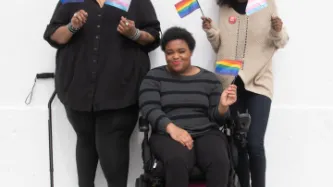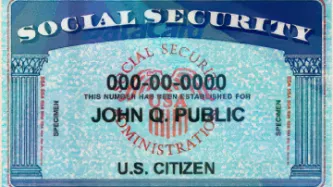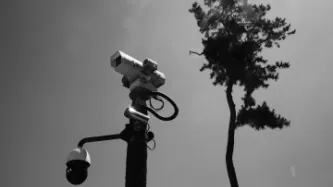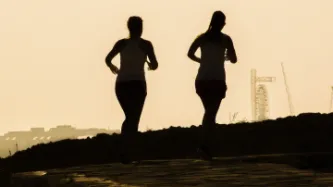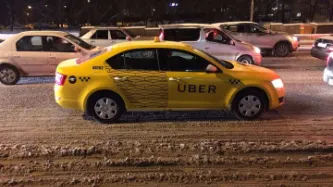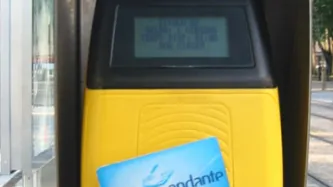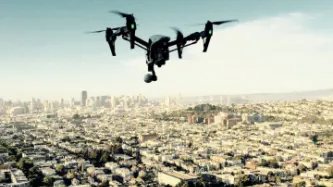Search
Content type: Explainer
At first glance, infrared temperature checks would appear to provide much-needed reassurance for people concerned about their own health, as well as that of loved ones and colleagues, as the lockdown is lifted. More people are beginning to travel, and are re-entering offices, airports, and other contained public and private spaces. Thermal imaging cameras are presented as an effective way to detect if someone has one of the symptoms of the coronavirus - a temperature.
However, there is little…
Content type: Examples
In Colombia, Peru, and Panama, quarantine regulations assign men and women different days to go out. For transgender people, these gender-based restrictions mean discrimination and violence for law enforcement and others, leading to numerous complaints. In Bogota, where law enforcement has been instructed not to demand ID to prove gender and trans people are allowed to choose their day, one trans woman was stabbed by a man who said she was out on the wrong day, and another was blocked from…
Content type: Examples
Eight days after instituting a gender-based quarantine schedule, Peruvian president Martin Vizcarra cancelled the measure two days before it was due to end. It had been met with a backlash from LGBTQ+ activists, who feared trans and binary people would face increasing street harassment from police. However, it also proved that because women do a disproportionate share of domestic work, gender separation forced them to gather in large groups on the days they were allowed out. Instead…
Content type: Examples
Ten Ugandan police officers were charged with torture after allegedly caning 38 women and forcing them to swim in mud in Elegu, a town in the northern part of the country. Police have also arrested 23 people during a raid on a shelter for homeless lesbian, gay, bisexual and transgender youth, accused them of disobeying orders by remaining in the shelter, and charging them with a negligent act likely to spread infection or disease.
Source: https://www.bbc.co.uk/news/world-africa-52214740…
Content type: Advocacy
TEDIC, InternetLab, Derechos Digitales, la Fundación Karisma, Dejusticia, la Asociación por los Derechos Civiles y Privacy International acogen el llamado de la Relatoría Especial sobre Derechos Económicos, Sociales, Culturales y Ambientales (DESCA) de la Comisión Interamericana de Derechos Humanos (CIDH) de enviar información para la elaboración del Informe Anual sobre DESCA del año 2019, que se presentará ante la Organización de los Estados Americanos (OEA) en 2020.
El objeto de este…
Content type: Advocacy
TEDIC, InternetLab, Derechos Digitales, Fundación Karisma, Dejusticia, Asociación por los Derechos Civiles and Privacy International welcome the call made by the Special Rapporteurship on Economic, Social, Cultural and Environmental Rights (ESCER) of the Inter-American Commission on Human Rights (IACHR) to inform the preparation of the Annual Report of the ESCER for the year 2019, which will be presented to the Organization of American States (OAS) during 2020.
This submission aims to outline…
Content type: Case Study
Discriminatory laws on the basis of sexual orientation across the globe exist in stark opposition to the principle that the law should be the same for each and every one of us. We are all entitled to the same protections against any discrimination. Equality before the law dictates that there must be a reasonable justification to regulate any aspect of a person’s life.
Laws discriminating on the basis of sexual orientation interfere with our private lives and development. There can be no…
Content type: Case Study
Every one of us has an expectation to be legally protected in the same way, to have access to the same human rights, and to be able to defend those rights in court.
However, for trans and non-binary people, this has not always been the case – and in many places around the world it still isn’t the case. The lack of legal recognition for their gender has had significant consequences.
If the law does not recognise you as the person that you are and treats you as someone you are not then you…
Content type: Impact Case Study
What happenedSince the late 1980s governments across the world have been trying to build identity registries. By the early 1990s, there were similar policies being pursued by a number of governments across the Pacific region, with similar technologies from the same companies. In the mid-90s ID cards became a ‘modern’ policy, implementing smart cards. By 9/11 biometric IDs became the preferred solution to undefinable problems. Then came vast databases of biometrics to identify people — with…
Content type: News & Analysis
Written by Karisma Foundation
7:03: Catalina leaves her apartment and a security camera follows her down the hall, another one observes her in the elevator while she fixes her hair. As she exits the building, the warden tells her she doesn’t have to fix her hair because she is already pretty as she is. She gets to the parking lot where another two cameras look at her while she gets into her car.
8:00: She is heading to an open data workshop organized by the Colombian government in a…
Content type: News & Analysis
Written by Privacy International
07:06: Camille’s smart pillow sends a signal to her smartphone that it’s time for her to wake up. She checks the quality of sleep on the app – last night was not great. Because the pillow tracks the motion in her bed, the company knows what else she may (or may not) have been up to. But the company doesn’t just track her when she is in bed. By downloading the app, Camille has also authorised access to her location wherever she goes, her camera, her contact…
Content type: News & Analysis
Written by the Foundation for Media Alternatives
7:01: Naomi wakes up and gets ready for the day.
7:58: Naomi books an Uber ride to Bonifacio Global City (BGC), where she has a meeting. She pays with her credit card. While Naomi is waiting for her Uber, she googles restaurant options for her dinner meeting in Ortigas.
9:00: While her Uber ride is stuck in traffic on EDSA (a limited access highway circling Manilla), Naomi’s phone automatically connects to the free WiFi offered by the…
Content type: News & Analysis
Written by Datos Protegidos
04:16: Carolina can´t sleep. She grabs her mobile from the nightstand next to her bed to check her WhatsApp notifications and read some tweets. She decides to disconnect to and tries to go back to sleep.
07:00: Carolina is woken by her mobile phone alarm. She picks it up and checks her social networks and messages again. To her astonishment, she finds a message in a WhatsApp group from her former college classmate Pablo at 5:25 asking if anyone was still…
Content type: News & Analysis
Written by Derechos Digitales
03:00: Maritza wakes up and gets ready. It’s still dark. She has to go stand in a queue outside the nearest grocery store, where after several hours her fingerprint will be scanned to retrieve her personal information from a governmental database. This will tell the cashier not only her address, full name and phone number, but also if she already bought her allotted ration of food that month. If so, she will be sent back empty-handed. There are drones flying…
Content type: News & Analysis
Written by the National Coalition for Human Rights Defenders - Kenya and Privacy International
05:00: Mercy’s alarm goes off. She gets out of the warmth of the bed into the piercing morning chill. She switches on the bedside lamp and reaches for her Bible. She then checks in onto her devotional group on Facebook, as she does every morning. Her Facebook app keeps track of her location, and the time she wakes up.
05:24: She steps into the shower and prepares for her day in the…
Content type: News & Analysis
Written by Privacy International
08:27: Jen gets on the London Underground to go to work. She uses her contactless debit card to pay for the tube, so Transport for London knows where she is travelling to and from and her bank knows when she takes the tube.
08:36: The public WiFi on the tube means that even when Jen doesn’t connect to it, her every step inside the underground is tracked. The data will eventually be sold to advertisers.
08:58: Jen arrives at work. As with all the lower…




